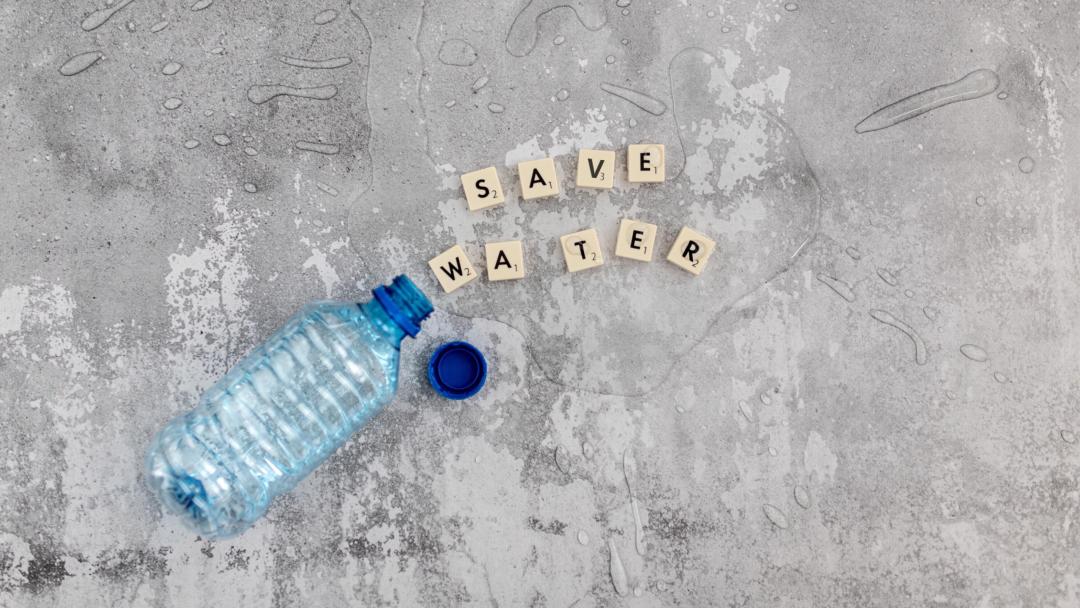
Water UCI Director David Feldman offers conservation advice
David Feldman, director of Water UCI, recently offered water conservation tips in the Reader’s Digest. The following is an excerpt from the article:
 Water conservation is the process of reducing water use from any source “and, thus, saving water for other purposes and for the future use of others,” says Feldman, professor of urban planning and public policy and political science who specializes in water resources management and policy.
Water conservation is the process of reducing water use from any source “and, thus, saving water for other purposes and for the future use of others,” says Feldman, professor of urban planning and public policy and political science who specializes in water resources management and policy.
According to Feldman, we can conserve water by consciously using it as efficiently as possible—meaning using only as much of it as is genuinely needed for the purpose at hand, whether it’s brushing your teeth, cooking, cleaning, or gardening.
Benefits of water conservation
The benefits of water conservation fall into two broad categories, Feldman explains: those for individuals and those for society as a whole. “As individuals, the less water we use, the lower our monthly water bills,” he says. “This individual benefit also applies to businesses, since most businesses also have to pay for water.”
Agriculture is one example. Although some farmers don’t have to pay for water if they own land with access to locally available streams or groundwater sources, Feldman says that they still benefit from preserving their water supply for use during periods of drought.
According to Feldman, most of the benefits of water conservation for society as a whole are in improved water quality.
“In essence, the more water we use, the more polluted wastewater we generate that flows down our sinks, drains, toilets, and sewer outfalls,” he explains. “This means that each of our communities has to expend more effort — and spend more money — on removing these contaminants before the water can be reused.”
There are also benefits for wildlife and countless ecosystems. “The less water we use, the more water is left in rivers, lakes, and streams to support aquatic life that depends on fresh water,” says Feldman. “This can help to protect otherwise endangered and threatened species.”
How to save money on your water bill
To save money on your water bill, it’s important to understand the basics, including how much you’re spending on water each month and how much water each of your appliances and fixtures expends when in use. That’s where a water use calculator, like the one above, can come in handy.
If you’re looking for some water conservation ideas that will help reduce your utility bills, Feldman suggests starting outside.
“The largest single use of water for most of us is outdoor use: watering our lawns and gardens and washing our cars,” he explains. “In some places, like the western U.S., outdoor uses account for between 35 and 50 percent of total household water use—or from one-third to one-half of our monthly water bills during the summer.”
Another option, Feldman says, is the practice of what’s known as tiered pricing or conservation pricing.
“In some regions of the country, water is billed according to a tier or category of usage,” he explains. “If a family limits its water use to a prescribed tier of use—say, 3,000 gallons per month for a family of four—then you end up paying less per gallon. If you exceed this tier or use rate, then you pay more per gallon. This is not only an incentive for less water use and lower monthly bills, but water agencies find that it helps conserve water significantly.”
Changing the way you wash your dishes can also save you money on your water bill, but the best way to do that depends on where you live and who you ask. Not everyone is in a position to buy a dishwasher, whether it’s for financial reasons or because they’re renters who aren’t permitted to install one. If that’s the case, Feldman says that running the tap the entire time uses five times the amount of water as filling a sink.
But, if someone is opting not to get a dishwasher because they think it’ll use more energy and water (and therefore cost more), they may be missing out on savings.
Does that mean that a dishwasher is always the best option? Not necessarily, says Feldman. Although running a full dishwasher uses less water than letting the tap run while handwashing dishes, the best method from a water conservation (and money saving) perspective is handwashing by filling the sink.
Water-saving tips
- Set a timer before getting in the shower to cut down on the number of minutes you spend in there. The average American shower lasts for 8.2 minutes and uses 17.2 gallons of water.
- Instead of a timer, pick a “shower song” and limit your showers to its duration. This method also helps you keep track of how much time you have.
- Turn the water in the shower off while you’re soaping up or shaving to cut your total water usage by around half.
- Use a bucket (or several) to catch the water coming out of the shower faucet while you’re adjusting the temperature or waiting for it to heat up. Then use it to water your garden, flush a toilet, clean, and so on.
- Turn off the sink when shaving or brushing your teeth. And when washing dishes, fill the sink with water and shut off the tap. Running the tap uses, on average, about five to six gallons of water.
- Install a low-flow showerhead. Older showerheads use roughly five gallons per minute, while new fixtures use approximately half that and offer equal water coverage and force by keeping the water pressure high.
- Replace toilets from before 1980 with low-flow models. That can save a household of three people about 21,000 gallons per year and more than $100 in water bills.
- Fix leaky toilets as soon as possible. How much water is wasted every day on them? As much as 200 gallons!
- Replace a traditional green lawn with landscaping that does not need to be watered on a regular basis. Watering the average-sized American lawn for 20 minutes a day for 7 days uses the same amount of water as running the shower constantly for four days.
- Clean sidewalks and your driveway using a broom instead of a hose.
- Water your lawn and garden early in the morning, when the temperatures are lower, to avoid speedy evaporation.
Contact:
Mimi Ko Cruz
Director of Communications
949-824-1278